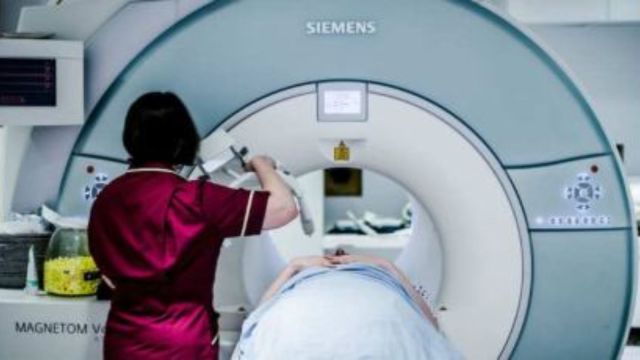Stay updated with the latest - Click here to follow us on Instagram
This British health project just scanned bodies of 100,000 volunteers. Here’s why it matters
UK Biobank completes the world’s largest medical imaging project with 100,000 volunteers scanned, offering scientists unprecedented data to study aging and disease.
 Operating across four dedicated sites in England, the imaging project of UK Biobank functioned 13 hours a day, seven days a week. (Representational/File photo)
Operating across four dedicated sites in England, the imaging project of UK Biobank functioned 13 hours a day, seven days a week. (Representational/File photo)In a landmark achievement for medical research, the UK Biobank has completed the world’s largest human imaging study by scanning the brains, hearts, and organs of 100,000 volunteers. The project, which began in 2014 and ran for over a decade, aims to provide scientists with unparalleled insights into how the human body ages and how diseases develop over time.
Operating across four dedicated sites in England, the imaging project of UK Biobank functioned 13 hours a day, seven days a week. Each participant underwent a five-hour session involving five different types of scans, including MRI, X-ray, and ultrasound, the BBC reported.
More than one billion images have been collected, all anonymised and made available at low cost to researchers worldwide.
Quoted by BBC, Professor Naomi Allen, Chief Scientist at UK Biobank, said, “Researchers are already starting to use the imaging data, along with other data we have, to identify disease early and then target treatment at an earlier stage.”
The 100,000th participant scanned was Steve, a retired sales professional from southern England who now volunteers for a charity. Speaking about his involvement, Steve was quoted by MSN as saying, “My mother in particular at the moment now, is suffering from early stages of dementia, close friends have had cancer. Giving up my time now… is going to help medical research in the future.”
What is UK Biobank and who funds it?
Established in 2003 the imaging element of the project is funded by the MRC, the Wellcome Trust and the British Heart Foundation, the BBC report says. Additional support for follow-up scans is provided by Calico (an Alphabet subsidiary) and the Chan Zuckerberg Initiative, founded by Facebook’s Mark Zuckerberg and Priscilla Chan.
The UK Biobank housed one of the world’s largest collections of biological and health data. It includes DNA, blood, urine, and saliva samples from 500,000 middle-aged volunteers, all stored at ultra-low temperatures in Stockport, Greater Manchester.
Since 2014, the imaging project has scanned 100,000 of those participants, with plans to invite them back for repeat scans every few years. This allows scientists to track changes in the human body over time and link early biological changes to future health issues.
The BBC report says US Biobank has made available 30 petabytes (30,000 terabytes) of anonymised data have already to researchers globally. While most pay between £3,000 and £9,000 for access, the fee simply covers operational costs, ensuring accessibility to universities, charities, government agencies, and private research groups.
Groundbreaking discoveries and global impact
The immense dataset is already reshaping how scientists understand disease development. Nearly 17,000 peer-reviewed papers have been published using UK Biobank data, with dozens more being released each week.
Some significant findings include:
- AI models combining MRI scans and health data can predict the early onset of 38 common diseases.
- Even low levels of alcohol consumption have been linked to an increased risk of memory loss and dementia.
- Liver diseases can be diagnosed and monitored through advanced MRI scans, potentially replacing the need for surgery.
- Structural changes in the heart have been correlated with a higher risk of psychiatric conditions such as depression.
UK Biobank is now among the top 10 largest repositories of personal health data globally, standing alongside initiatives in China, Germany, and the United States. However, what sets it apart is its commitment to making data available internationally for public and private sector research.




- 01
- 02
- 03
- 04
- 05



























